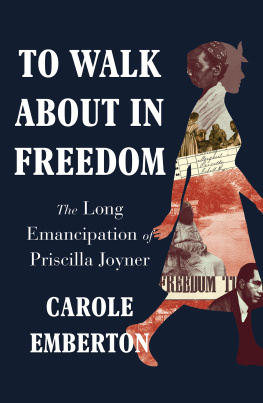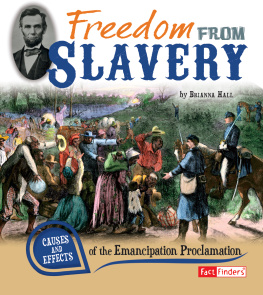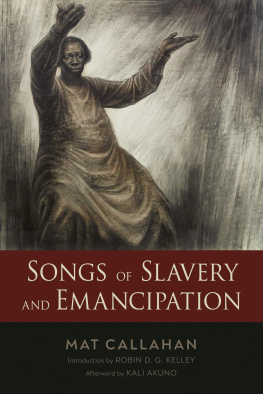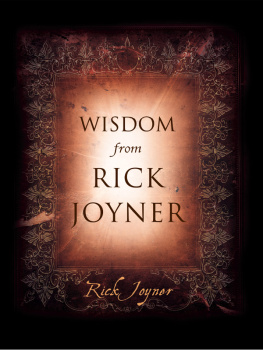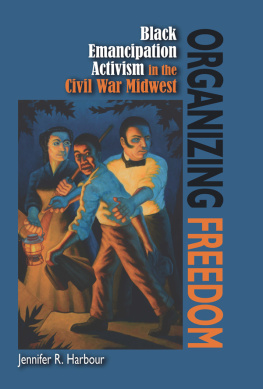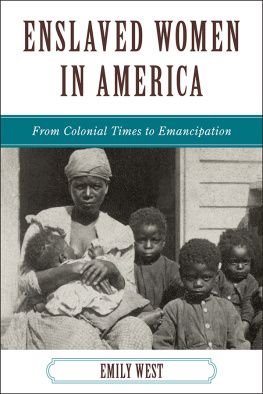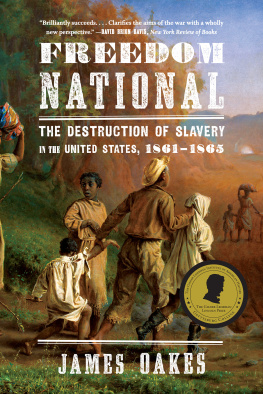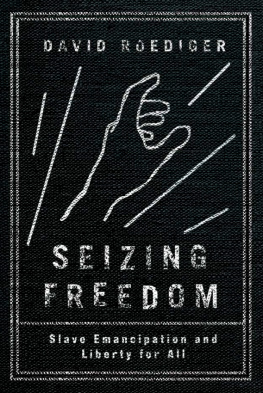
TO WALK
ABOUT IN
FREEDOM

The Long Emancipation
of Priscilla Joyner

CAROLE EMBERTON

W.W. NORTON & COMPANY
Independent Publishers Since 1923
How did you first learn you were free?
What did you do when you learned you were free?
Were the slaves glad to be free?
Where did you go after freedom?
Sample questions for interviewing ex-slaves,
Federal Writers Project
I will walk about in freedom, for I have sought out your precepts.
Psalms 119:45
Crocker Funeral Home would see to her funeral, just as they had for her husband and children who preceded her in death. It was no small affair. The choir of St. Paul Baptist Church joined two soloists, three pastors, and several other speakers who remembered Priscilla Joyner, including twenty-two grandchildren, twenty-five great-grandchildren, and one great-great-grandchild. Relatives from North Carolina traveled to Suffolk to say goodbye along with Liza, Frank, and Harry, her surviving children. Priscilla was then buried in Oaklawn Cemetery beside Lewis, David, Mamie, Jencie, Priscilla, and Hyman, who died in 1942.
A death certificate and obituary can tell us only so much. The identity markers these documents conveyfemale, colored, widowed, as stated on her death certificate, or Wife of Lewis Joyner, the headline of her obituaryfail to convey many of the key facets of her life and personality. We do not know precisely how she was eulogized at her funeral, what stories the mourners told about her as they shared a post-funeral meal in the church fellowship hall or back at Lizas house. Did they speak of her tireless devotion to her family, friends, and neighbors? Did they shake their heads at her many sorrows, all those children lost to TB, and her endurance in spite of it all? Did they whisper about her early years, her white mother, the way her half-brothers cheated her out of her inheritance?
In my search to better understand the importance of Priscilla Joyners life and what her legacy may have been for those who knew her, I found one tiny shard of insight. It is a 1962 announcement celebrating the flower show winners at the 52nd Annual Tidewater Fair. That fall, eighteen years after her death, the Priscilla Joyner Garden Club of Suffolk placed third.
It may not seem like much, but for me that notice brought Priscillas story full circle. The first time I met her, when I read Dunstons interview, she was in her garden. The garden was obviously a place of refuge for her, and she used its blossoms as a buffer to soften the difficult memories that Dunston and Lewiss visit stirred up. She was proud of what she had accomplished and the fact that others took pleasure in the beauty she had created. It took skill and knowledge, which she may have acquired as a young girl from the notable gardeners of Freedom Hill, a town that would become famous for its flowers. The people there, Priscillas people, planted the seeds of freedom and coaxed beauty from the unforgiving earth that L. L. Dancy begrudgingly gave them, earth that had soaked up the sweat and blood of generations of their people.
The constant planting, dividing, weeding, transplanting, pruning back, praying for rain, lugging buckets of water when there was noneit was all so much hard work. It was also a supreme act of faith. Put in the seedlings, pack the soil with crushed eggshells and leftover coffee grounds, and hope. This was how those who knew Priscilla Joyner remembered her. They honored her memory by giving their garden club her name, a tribute to her patience and perseverance, and also her artistry. In the same way, Black poet and novelist Alice Walker reflected on her own mother who, like Priscilla, was a renowned gardener. The flowers were so numerous and beautiful around Walkers childhood home in Georgia that strangers would often get out of their cars and ask to stand or walk among my mothers art. Walker recalled watching her mother in the garden and how the overworked, exhausted womanwho spent her days working in the fields alongside her husband, and her evenings cooking, canning, and sewinglooked as she tended to her prized flowers:
I notice that it is only when my mother is working in her flowers that she radiant.... She is involved in work her soul must have. Ordering the universe in the image of her personal conception of Beauty.
Black women like Priscilla Joyner and Alice Walkers mother, along with countless others who created life and beauty with the only materials [they] could affordsalvaged rags and scraps of fabrics, dirt, and seedsmade more than just food and clothing and bed coverings. They wove together generations of families with threads of love; they grew a culture of caretaking and artistry that has sustained a people for centuries.
Priscillas story would continue to fascinate Roscoe Lewis, who published an article about her life in 1959. It was part of a larger book project he was working on entitled O Freedom, which he envisioned as a corrective to other studies, including The Negro in Virginia, which focused on the bizarre and sometimes fantastic
This is my pride, Priscilla says to him in the essay. I practically live out here in my flowers. I declare, I hardly take the time to fix me a bite to eat.
The essay also adds details about how Priscillas half-siblings tormented her when they were small, including how her younger brother, Jolly, would sing, Prissys Black, Prissys Black, when their mother was not around.
And whenever wed wash for meals, theyd always whisper to me to scrub real hard and try to wash the dirt off my face, Lewis quotes Priscilla as telling him.
Perhaps Lewis was working from a different set of notes that did not survive.
More troubling is the way Lewis wrote Thelma Dunston completely out of the story. Its clear from the original transcription that Lewis was not the one conducting the interview; Dunston relays how she sent him and the schoolteacher who brought them on an errand in the hope that Priscilla might open up to her. However, in Lewiss essay, he portrayed himself as the lone interviewer and claimed much of Dunstons writing as his own.
What we are left with are accounts of Priscillas interview that may not reflect her actual testimony. Dunstons transcript varies to some degree from Lewiss published essay, and both of those present a wildly different portrait of a life than the unverified snippet that Eudora Ramsay Richardson included in The Negro in Virginia. And what is true for Priscilla Joyners narrative is also true for a vast majority
Despite these limitations, which are present to a degree in every primary source we use to reconstruct past lives, these narratives remain a valuable resource for delving into the inner lives of the charter generation of freedom. They are some of the only firsthand accounts of the Civil War and emancipation from men and women who otherwise left little in the way of historical records. Many of them, unlike Priscilla Joyner, were illiterate. Oral histories, where they exist, give us the opportunity to hear the voices of people who otherwise would be lost to history. Even when those memories may be faulty, exaggerated, or embellished, first-person testimony contains what historian Christopher Browning refers to as the essence of an ineffable experience. Browning, an expert on the testimony of Holocaust survivors, encourages us to focus less on mistakes or inaccuracies within these narratives, and instead pay attention to the fragments of thoughts, feelings, and images that structure all human memory.
Next page
